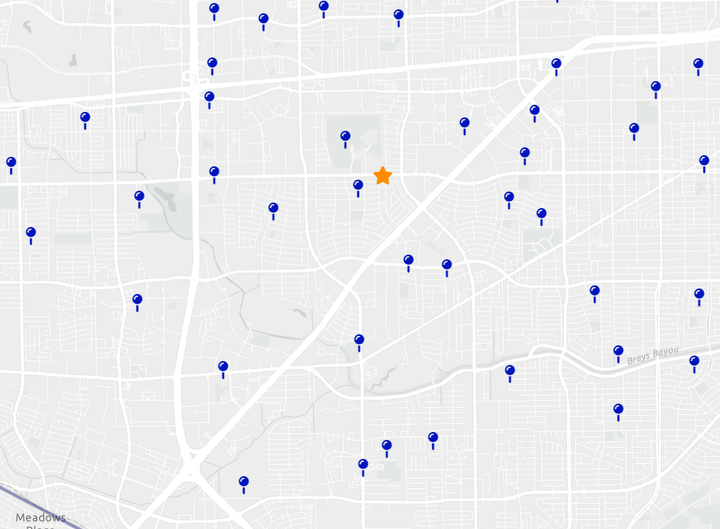Can Houston Afford Whitmire’s Firefighter Deal? Council Members Pollard and Thomas Still Have Questions

Last Wednesday’s city council meeting didn’t answer all the questions District J City Council Member Edward Pollard and District F Council Member Tiffany Thomas have for Mayor John Whitmire and City Attorney Arturo Michel.
The council’s hour-long, sometimes heated discussion revolved around whether the city of Houston—already facing a budget shortfall—is able to pay for a deal that Mayor John Whitmire negotiated to settle the city's eight-year pay dispute with Houston's firefighters' union.
Whitmire said this deal is necessary to hire and retain enough firefighters and build a strong fire department. But if city council okays the price tag, the two-part deal could cost Houston ~$72 million per year. One part, the collective bargaining agreement, would cost ~$36 million in base pay increases per year for the next five years. The other part, the judgment bond, would cost an additional ~$36 million in back overtime pay per year—for the next 25-30 years.
City controller Chris Hollins warned that if the agreement goes through, the city of Houston could face a total budget shortfall of $230-$280 million next fiscal year, according to the Houston Landing. Thanks to saving up a $400 million fund balance, Houston could stay financially afloat next year, but after that, the future would be uncertain, said Hollins.
Council Members Pollard and Thomas—who represent constituents from Sharpstown, Alief, Braeburn, Gulfton, Westwood, and other areas of Southwest Houston—signed a public joint letter that they emailed to Whitmire on March 18. It contained ten questions about aspects of the agreement that concerned them.
Both said they had queried the mayor’s office before but didn’t receive a response until they sent a public letter.
After receiving a point-by-point reply letter from city attorney Arturo Michel on March 20, Pollard and Thomas still have questions.
How Will Houston Pay—and Do Voters Want to Foot the Bill?
For Thomas, it revolves around the price tag. The city’s financial director hasn’t released the five-year forecast yet, and the council’s budget and fiscal affairs committee won’t meet until April 2. Without more details, she wonders how the city will pay for the deal. She told the Sharpener she's concerned that “in thirty years, someone will point back to this moment and say, ‘The reason why Houston’s no longer affordable? This.’”
She also thinks Houston voters, not city council, should decide whether to approve the judgment bond. “For something as substantial as this, you cannot forsake the participatory role the public still should take.”
Pollard shares her concerns about cost and getting voter input. He also mentioned that if city council approves the judgment bond and tries to fund it by lifting property tax revenue caps, the tax increase will have to go to the ballots in November anyway. “What happens if the taxpayer does not approve?”
He doesn’t want Houston to end up on the hook for money that city council has agreed to pay, but taxpayers have not agreed to fund.
In an interview with the Sharpener, city attorney Arturo Michel said that Mayor Whitmire is “currently not open to sending the bond to voters” because the next election, in November, may be too late.
If passed by city council, Whitmire’s deal would avert a trial which Judge Lauren Reeder had originally proposed for this year, said Michel. But if Whitmire’s deal—which isn’t finalized—falls through, Michel believes the union and Judge Reeder may decide to go to trial or force private arbitration this summer. In that case, he thinks the outcome may end up costing Houston even more.
Pollard, a lawyer, thinks it's not so clear-cut. "You never know what a judge or jury will come back with."
As far as how Houston would afford Whitmire's deal, Michel said, “Right now, everything’s on the table.” That likely includes finding ways to raise revenue, he confirmed. Based on last week’s council meeting, possibilities include raising downtown parking fees, adding a trash fee, or raising property taxes.
How Competitive Is Houston's Pay Right Now?
One more key question for Pollard and Thomas involves evaluating how Houston’s firefighter pay stacks up against that of other major Texas cities. Michel’s response letter states that Houston’s base pay for first-year firefighters lags at least $10k behind Dallas, Fort Worth, Austin, and San Antonio’s, but the council members say that’s not the whole story.
Thomas says Fort Worth has more money to spend on firefighters since the city "privatized" its EMS service, unlike Houston. “64% of our firefighter operation is EMS.” But in his reply letter, Michel said that's a reason to pay Houston firefighters more: running EMS services "leads to comparatively busier shifts."
Pollard says that based on the "average hourly rate per rank," rather than yearly base pay, Houston is "very competitive."
Both also emphasized that time-and-a-half overtime pay for Houston’s firefighters starts at 46.7 hours instead of the standard 53. Pollard wonders if that evens out the differences between base pay in Houston and other major cities. “Does that catch you up?”
Currently, base pay for a first-year Houston firefighter is $51,842 per year. If the deal goes through, then firefighters would receive a gradual base pay raise of 24-34%, depending on whether the city is able to raise enough revenue. In the first year, firefighters would receive a 10% raise. In years 2-5, the raises would be 3%-3%-4%-4% or 6%-6-%-6%-6%.
In year one of the deal, first-year firefighters would make ~$57,026 per year. In year five, first-year firefighters would be making ~$65,435 – $71,994.
Seeking Clarity
Pollard said on Wednesday, 3/27, that he sent further questions to Whitmire’s administration and is waiting for a reply.
Neither council member told the Sharpener that they're against the deal. They just want more clarity.
“Our firefighters go above and beyond to ensure that we live in a very safe city.... I support our firefighters and want to see them paid fairly.... But we just need to make sure that we do so in a responsible fashion and that we don’t put the city in a financial crisis,” said Pollard.
Said Thomas, "Future generations are going to be responsible.... There needs to be more public discourse. There needs to be a public timeline so people are aware."
Michel said that if Attorney General Ken Paxton approves the deal, it will go to city council. If council votes yes, the deal will go to the court for final approval. Michel hopes to finish the process by June, before the start of Fiscal Year 2025 (July 1, 2024).
The Sharpener is donor-supported. Help us keep our hyperlocal news free for our community! You can send your tax-deductible donations to the foundation that sponsors us, Zenger House, which will pass them on dollar for dollar to the Sharpener.
Donate Online: you can give at Zenger House’s website. Just let them know you’re sending the money to the Sharpener.
Send a Check: you can mail it to Zenger House at 4106 Firstview Drive, Austin, TX 78731. Remember to put "The Sharpener" in the memo line.



Comments ()